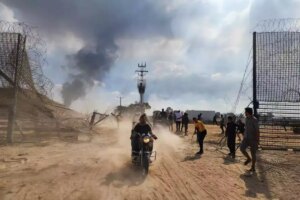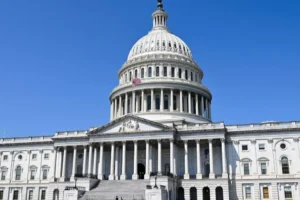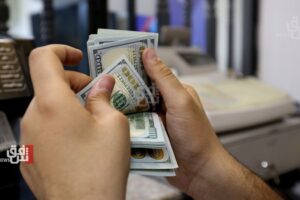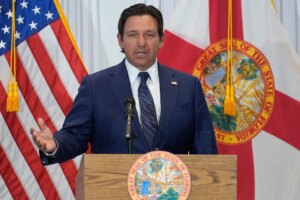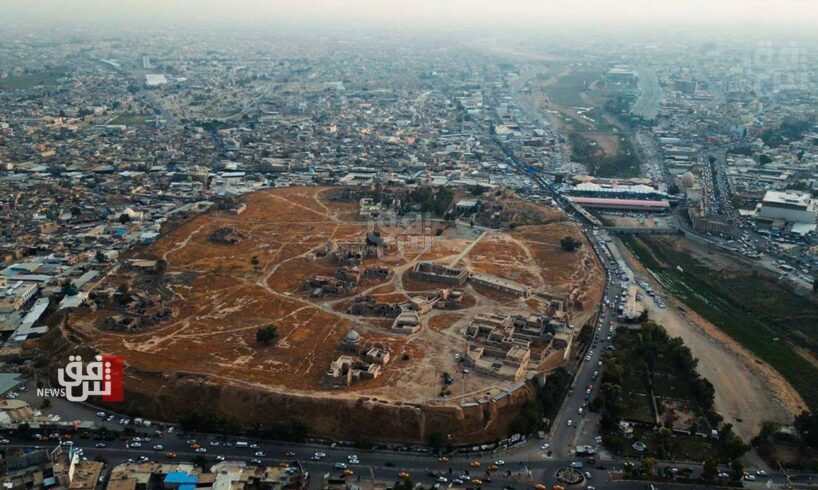
Shafaq News
Kirkuk — one of Iraq’s most diverse
and contested provinces — is once again the focus of national and regional
attention ahead of the November 11 parliamentary elections. Kurdish, Arab, and
Turkmen parties are entering one of their most competitive races in years for
the province’s 13 parliamentary seats, including one reserved for the Christian
community.
In 2021, Kurdish parties secured six
seats, Arab alliances four, and Turkmen factions two, reflecting a fragile
balance that continues to define Kirkuk’s complex political fabric.
This year, 252 candidates, including
73 women, are vying for Kirkuk’s representation. Kurdish parties have chosen
unity, running on a single list, while Arab and Turkmen blocs remain divided.
Behind these electoral tactics lies a deeper question: can Iraq’s institutions
guarantee a fair contest in the province that most vividly reflects the
country’s enduring struggle to reconcile diversity with federal integrity?
The Pulse of Iraq’s Political
Balance
Since Iraq’s first post-Saddam
parliamentary vote in 2005, Kirkuk has served as both a testing ground and a
warning sign. Every election here has mirrored shifts in Baghdad’s national
equilibrium — from post-war restructuring to the ISIS’s collapse, from Kurdish
autonomy debates to the renewed assertion of federal control after the 2017
independence referendum.
Kirkuk’s electoral history reads
less as a list of results and more as a political pulse: in 2005, Kurds
captured the majority of seats in a province still hopeful about constitutional
inclusion; in 2014, they reached their peak amid the fight against ISIS, while
Arab and Turkmen parties were still reorganizing. The 2018 election, held after
Baghdad’s retake of the province, exposed the first major rupture — Kurdish
participation dropped sharply following the Kurdistan Democratic Party’s
boycott, opening the door for Arab and Turkmen blocs to expand. In 2021, a
partial Kurdish recovery restored some equilibrium, yet the structural dispute
persisted: Kirkuk remained governed by suspicion rather than consensus.
The 2025 race thus represents not
simply another vote but the culmination of two decades of unresolved federal
promises. Despite institutional progress, Kirkuk’s political DNA has not
changed — every electoral cycle reactivates the same fault lines over land,
power, and legitimacy.
A Province of Suspicion
Today, the debate has once again
centered on the voter registry — the administrative file that has come to
symbolize political mistrust.
Turkmen leader Arshad al-Salihi has
announced his intent to sue the Independent High Electoral Commission, accusing
it of “failing to audit the Kirkuk registry” and warning of “interventions
aimed at influencing the will of the electorate.” His party’s spokesperson,
Qahtan al-Wundawi, told Shafaq News that holding elections without a verified
registry contradicts a Federal Supreme Court ruling mandating full review
before any vote.
Al-Wundawi insisted that the
disputes among Kirkuk’s communities are not about electoral mechanics, but
about whether state institutions can act neutrally in a province where
demographic engineering under Saddam Hussein still shapes political memory. “Ensuring
fair representation,” he said, “requires a special law regulating seat
distribution — something Kirkuk still lacks.”
For the Independent High Electoral
Commission (IHEC), however, the matter is settled. Spokesperson Jumana
al-Ghalai confirmed to Shafaq News that the registry has been finalized and
approved by the Board of Commissioners, and that all provinces, including
Kirkuk, are operating under identical procedures.
The commission, she added, is
conducting the process in coordination with the United Nations Assistance
Mission for Iraq (UNAMI), with over 1.2 million eligible voters — nearly
900,000 of whom hold biometric cards — across 330 polling centers.
These reassurances have not quieted
doubts. The registry debate represents a deeper issue: Kirkuk’s elections
remain the meeting point of procedural law and political fear. Every
administrative detail — from the number of cards issued to the placement of
polling centers — is viewed through an ethnic lens, converting bureaucratic
uncertainty into political tension.
The Shadow of Article 140
No discussion of Kirkuk can avoid
the constitutional vacuum left by Article 140, the clause meant to resolve
disputes over territories contested between Baghdad and Erbil. Enacted in 2005
and left incomplete ever since, it promised a sequence of normalization,
census, and referendum — all of which stalled amid security crises and
political paralysis.
For many Kurds, as expressed by
Muhammad Dalawi of the Kurdistan Democratic Party, implementing Article 140
remains “the only way to end the cycle of mistrust.” He described current
disputes as “electoral, not existential,” emphasizing confidence in the commission’s
readiness. But for Arab and Turkmen leaders, Article 140 symbolizes unfinished
business — a mechanism that froze their political fate in constitutional limbo.
The Federal Supreme Court reaffirmed
in 2019 that the article “remains in effect until fully implemented,” yet that
declaration only reinforced the sense that Kirkuk’s future is perpetually
postponed. Without resolution, every election becomes a substitute referendum —
a proxy battle for legitimacy in a province that Baghdad administers, Erbil
claims, and both depend on for oil and symbolism.
Unity and Fragmentation
The current political map
intensifies these contrasts. Five Kurdish lists, seven Arab alliances, and two
Turkmen blocs are competing this year — the broadest field since 2005. Kurdish
coordination may translate into consolidated strength, while Arab and Turkmen
divisions risk diluting their influence. Azzam al-Hamdani, a leading figure in
the Azm Alliance, told Shafaq News that Kirkuk’s stability “depends on
transcending the arithmetic of ethnicity toward a shared vision of governance,”
but warned that “political pressure and registry imbalances could again
undermine trust in the vote.”
The pattern showed that when unity
exists, representation stabilizes, and where fragmentation prevails, grievances
multiply. Yet none of the groups seems willing to trade tactical advantage for
long-term coexistence. As in previous elections, Kirkuk’s diversity is both its
strength and its undoing.
The Test of Federal Credibility
Beyond seat counts and rivalries,
the real question is whether the Iraqi state can administer this election in
Kirkuk without reopening old wounds. Since federal forces reclaimed the
province in 2017, Baghdad has promised balanced governance — but in practice,
Kirkuk has remained under a fragile administrative arrangement that satisfies
none of its communities completely.
Therefore, if the elections proceed
smoothly, Kirkuk could offer a rare example of functional federalism — a
province that, despite its divisions, channels competition through ballots
rather than barricades. If they falter, it could reaffirm the perception that
Iraq’s diversity remains ungovernable without external mediation or
extraordinary measures.
Ahead of the Vote
With the sixth electoral cycle
approaching, the province remains Iraq’s most revealing mirror — reflecting
both the endurance of democracy and the limits of reconciliation. Two decades
of ballots have neither erased mistrust nor altered geography, but they have
preserved one fragile truth: coexistence in Iraq is still negotiated, not
granted.
The November 2025 elections will
decide who governs Kirkuk, but more importantly, they will reveal whether Iraq
can still govern itself through institutions trusted by all its people.
Written and edited by Shafaq News
staff.
Read more:Iraq’s 2025 Parliamentary Elections— What You Need to Know
